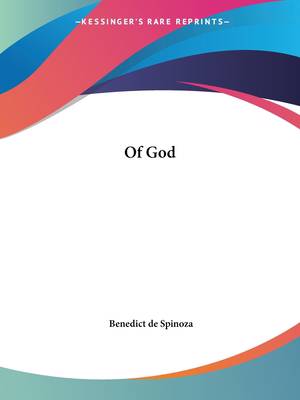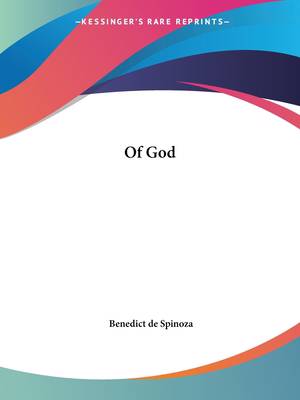
- Afhalen na 1 uur in een winkel met voorraad
- Gratis thuislevering in België vanaf € 30
- Ruim aanbod met 7 miljoen producten
- Afhalen na 1 uur in een winkel met voorraad
- Gratis thuislevering in België vanaf € 30
- Ruim aanbod met 7 miljoen producten
Zoeken
Omschrijving
""Of God"" is a philosophical treatise written by the Dutch philosopher Benedict de Spinoza in the 17th century. The book is divided into two parts, with the first part discussing Spinoza's views on God, nature, and the universe. Spinoza argues that God is not a personal deity, but rather an impersonal force that is present in all things. He believes that everything in the universe, including humans, is a manifestation of God and that there is no distinction between the natural and the supernatural.In the second part of the book, Spinoza discusses the human mind and how it relates to God. He argues that the mind and the body are two aspects of the same thing and that the mind is not separate from the physical world. Spinoza also discusses the nature of free will, arguing that it is an illusion and that all actions are determined by the laws of nature.Overall, ""Of God"" is a complex and influential work that challenges traditional views of religion and philosophy. It is considered one of the most important works of Western philosophy and has had a significant impact on subsequent thinkers and movements, including the Enlightenment and modern atheism.THIS 52 PAGE ARTICLE WAS EXTRACTED FROM THE BOOK: Ethic: Demonstrated in Geometrical Order and Divided into Five Parts, by Benedict de Spinoza. To purchase the entire book, please order ISBN 1564596257.This scarce antiquarian book is a facsimile reprint of the old original and may contain some imperfections such as library marks and notations. Because we believe this work is culturally important, we have made it available as part of our commitment for protecting, preserving, and promoting the world's literature in affordable, high quality, modern editions, that are true to their original work.
Specificaties
Betrokkenen
- Auteur(s):
- Uitgeverij:
Inhoud
- Aantal bladzijden:
- 52
- Taal:
- Engels
Eigenschappen
- Productcode (EAN):
- 9781425315368
- Verschijningsdatum:
- 8/12/2005
- Uitvoering:
- Paperback
- Formaat:
- Trade paperback (VS)
- Afmetingen:
- 210 mm x 279 mm
- Gewicht:
- 140 g

Alleen bij Standaard Boekhandel
+ 51 punten op je klantenkaart van Standaard Boekhandel
Beoordelingen
We publiceren alleen reviews die voldoen aan de voorwaarden voor reviews. Bekijk onze voorwaarden voor reviews.











